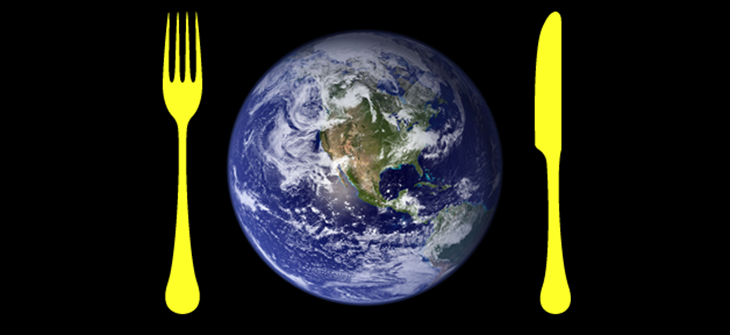Published 16/07/2013

With the world population predicted to rise to around nine billion by 2050, experts believe that food production must increase dramatically – by further intensifying farming. But is this really the solution? We investigate how a crackdown on factory farming would be half the battle won.
It’s often said that agricultural productivity needs to rise by at least 60 percent if we are to feed the planet’s ever-increasing population. According to some, this figure actually may be nearer to 100 percent, or double the current output.
Jon Foley, co-author of a recent academic report on the subject, says: "Feeding nine billion people in a truly sustainable way will be one of the greatest challenges our civilization has ever faced."
So how do scientists suggest we go about achieving such a hike in food production?
Making a bad situation worse
The report suggests that boosting existing yields is the best approach. But there’s only so much productivity you can squeeze out of a piece of land before you hit a biological "wall"; the point at which yields stop rising, due mainly to soil degradation.
At this point, there will be the temptation to cultivate more and more land for crops. This will mean destroying finely balanced ecosystems and undermining the livelihoods of small-scale farmers across the world. Bad news all round.
Indeed, the pressure to increase crop yields might also, according to a recent Guardian article, reignite the debate about the use of GM crops – an oft-cited solution to the spectre of food insecurity.
A more logical approach?
But there are a handful of far more sensible strategies out there for boosting food supply, and they’re staring us right in the face.
Two of the most obvious ideas are to reduce food waste and overconsumption in the West, and it goes without saying that these scandalous modern-day habits must be broken if we are to feed the world in the coming decades. But arguably the most significant move in the struggle for food security will be to encourage people to eat less but better meat. Here’s why:
Making ends meat
Around two-thirds of farm animals worldwide are reared in factory farms, where they are often fed human-edible grains. This is madness in a world where more than a billion people are starving and where we’re facing a boom in the global population. The cruel irony, as UNEP says, is that there’s more than enough food to go around; the problem lies entirely in its illogical distribution.
What makes matters worse is that farm animals are inefficient converters of energy. For example, UNEP calculated that 100 calories of animal feed can produce as little as 17 calories of meat and dairy products. In short, intensive meat production is a senseless waste of precious resources.
It follows, then, that if people ate less but better meat, there would be less pressure on farmers to rear livestock intensively. As a result, we’d need to grow far fewer crops because there wouldn’t be so many animals to feed. And crops could then be used to feed people.
Here at Compassion in World Farming, we firmly believe that the solution to the challenge of feeding more than 9 billion people is not simply to intensify food production, which would have disastrous consequences for society and the environment. Instead, it’s about improving our diets, driving out old habits and creating a farming system fit for the 21st century.
As agricultural expert Dr Baba Dioum says (quoted in our last blog): "We must ensure farming is modernised, not industrialised".
PS: If you’d like to eat less meat and want some guidance on how to plan your meals, then check out our blog on Mark Bittman’s innovative new Vegan Before 6pm eating plan.
